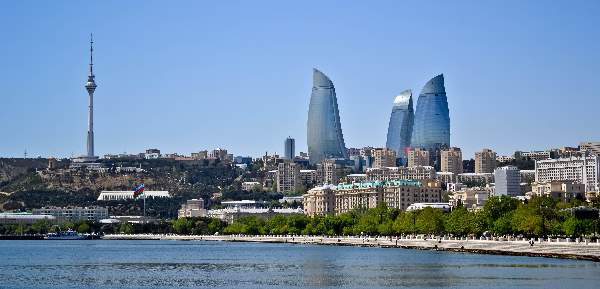As we know, about two weeks ago Azerbaijan launched a large military operation in Nagorno-Karabakh (Artsakh), during which a number of modern weapons, mostly Turkish and Israeli-made, were used.
Iran, which considers itself an ally of Armenia, rushed to send large military units to the border with that country. In response, Turkey, an ally and, as already mentioned, an important arms supplier to Azerbaijan, threatened Iran with war.
Azerbaijan’s military operation managed to achieve its goals very quickly. Armenian units in Nagorno-Karabakh surrendered within two days.
This was largely due to the fact that Azerbaijani troops successfully used Israeli Tammuz missiles and strike drones that effectively destroyed armored forces, as well as anti-aircraft and radar systems of Armenian units. Moreover, the Azerbaijani army used Israeli operational-tactical missile systems LORA, capable of hitting targets at a distance of hundreds of kilometers, which were used to eliminate headquarters and bunkers deep behind the front line.
Certainly, Azerbaijan took advantage of the situation when Russia, which is also considered to be Armenia’s ally, is deeply entrenched in Ukraine and is neither ready nor able to open an additional front. Meanwhile, Iran had to watch that Armenian military formations were literally swept away by precise and effective strikes of Israeli-made weapons.
The President of the Nagorno-Karabakh Republic (Republic of Artsakh) signed an official decree dismissing the autonomy, by doing so he actually recognized the final annexation of the region by Azerbaijan and the defeat of Armenia.
Unfortunately, of course, the conflict in Nagorno-Karabakh is far from over. In recent days there has been a mass migration to Armenia of Armenians who are afraid to stay on the territory that has finally come under the control of Azerbaijan. At the moment about 70 thousand people have already left their homes. In total, about 120 thousand people, almost only Armenians, lived in Nagorno-Karabakh before the recent events. Obviously, tens of thousands of those who remained are also planning to leave the region.
The coming under Azerbaijan’s full control of more and more territories on the border with Iran is causing growing concern in Tehran, which sees Azerbaijan as an active ally of Israel. Of course, this situation is causing more and more tension between the countries. In particular, Azerbaijan is considering the possibility of closing one of the most important land border crossings into Iran, which is now under its control. In turn, Tehran sees this situation as a reason to maintain the presence of significant military forces in the region.
Meanwhile, Turkish President Erdogan announced his desire to visit another territory that is the source of conflict between Armenia and Azerbaijan — the Nakhichevan Autonomous Republic. Now it is isolated from Azerbaijan by the territory of Armenia. Turkey and Azerbaijan seek to eliminate this situation and create a land route through the territory of Armenia, which, for obvious reasons, is strongly opposed to this. Iran, in turn, supports Armenia’s position.
As a result, Iran’s relations with its neighbors — Azerbaijan and Turkey — are deteriorating and even deteriorating.
From Israel’s point of view, the developing situation in the Caucasus is important in two aspects.
First of all, the conflict in Nagorno-Karabakh has clearly demonstrated the superiority of modern Israeli weapons over Russian and Iranian weapons (which were used to arm Armenian units).
Secondly, the growing conflict with Azerbaijan and Turkey actually forces the Iranian regime to spend its resources not on the war with Israel, but on the defense of its interests in the Caucasus. This is why Hizbullah’s activity has declined sharply in recent weeks — its masters are too busy on a completely different front....
“Praise the G-d for He is good, for His kindness is Everlasting”!
